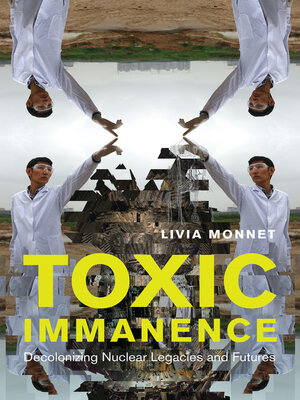
Sign up to save your library
With an OverDrive account, you can save your favorite libraries for at-a-glance information about availability. Find out more about OverDrive accounts.
Find this title in Libby, the library reading app by OverDrive.



Search for a digital library with this title
Title found at these libraries:
| Loading... |
More than a decade after the Fukushima Daiichi nuclear disaster, what we are witnessing is not a Second Nuclear Age – there is no post-atomic – but an uncanny, quiet return of the nuclear threat that so vividly animated the Cold War era. The renewed threat of nuclear proliferation, public complacency regarding weapons stockpiles, and the lack of a single functioning long-term repository after seventy years and thousands of tonnes of nuclear waste reveals the industry's capacity for self-reinvention abetted by an ever-present capacity to forget. More than "fabulously textual," as Jacques Derrida described it, the protean, unbound, and unending materiality of the nuclear is here to stay: resistance is crucial.
Toxic Immanence introduces contemporary interdisciplinary perspectives that resist and decolonize the nuclear. Contributors highlight the prevalence and irrationality of slow violence and colonial governance as elements of the contemporary nuclear age. They propose a reappraisal of Cold War-era anti-nuclear art as well as pop culture representations of nuclear disaster, while decolonizing pedagogies advance the role of education in communicating and understanding the lethality of nuclear complexes. Collectively, the essays develop a robust critical discourse across fields of nuclear knowledge and integrate the work of the nuclear humanities with environmental justice and Indigenous rights activism. This reach across ways of knowing extends artistically: the poetry and photography included in this volume offer visions of past and present nuclear legacies.
Conceived as a critical reflection on the potential of nuclear humanities, Toxic Immanence offers intellectual strategies for resisting and abolishing the global nuclear regime.






